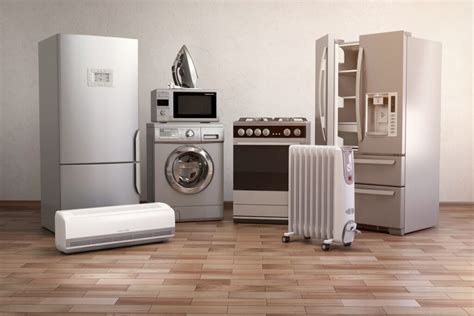Unlocking Savings: How Federal Energy Rebate Programs Can Cut Your Utility Bills
In recent years, the energy landscape has dramatically shifted, prompting federal government initiatives to help homeowners and businesses alike save on utility bills. One such initiative is the advent of federal energy rebate programs, designed to make energy-efficient upgrades accessible to more families and individuals. These programs not only alleviate the financial burden faced by energy consumers but also contribute positively to the environment. This article will dive into how federal energy rebate programs can help you cut your utility bills, as well as provide guidance on how to take advantage of these initiatives.
Understanding Federal Energy Rebate Programs
Federal energy rebate programs are incentives provided by the government to encourage the use of energy-efficient appliances, insulation, and other upgrades. Key programs include the Federal Energy Efficiency Tax Credits and the Home Performance with Energy Star Program. These rebates can range from a few hundred to several thousand dollars, depending on the type of upgrades made and the state of residence. The primary aim is to reduce the overall energy consumption of households and businesses, thereby lowering utility bills.
Why Consider Energy Rebates?
Energy efficiency improvements often come with a higher initial cost, deterring some consumers from making these investments. However, federal energy rebate programs significantly lower this financial barrier. Here are some reasons why considering these rebates can be beneficial:
- Substantial Savings: Energy-efficient appliances and systems typically consume less electricity, resulting in lower monthly utility bills. For instance, replacing an old HVAC system with an energy-efficient model could result in savings of 20% or more on your monthly heating and cooling costs.
- Long-term Investment: Upgrading to energy-efficient technologies not only cuts your current expenses but also increases your property’s value. Potential buyers are often attracted to homes with lower utility costs.
- Environmental Impact: Saving energy means reducing carbon emissions. By opting into these programs, you’re not just saving money; you’re contributing to a more sustainable future.
Popular Federal Energy Rebate Programs
Several programs focus on different aspects of energy efficiency. Here’s a closer look at some of the most popular federal energy rebate initiatives:
1. Federal Energy Efficiency Tax Credits
Under this program, homeowners can receive tax credits for energy-efficient home improvements, such as solar panels, energy-efficient windows, and insulation. Depending on the upgrade, tax credits can provide significant savings when you file your taxes.
2. Energy Star Appliances Rebate
This program incentivizes the purchase of Energy Star-rated appliances. Homeowners can receive rebates for replacing old appliances like refrigerators, washing machines, and dishwashers with high-efficiency models.
3. Weatherization Assistance Program (WAP)
This program helps low-income families make their homes more energy-efficient. It provides funding for improvements such as insulation, sealing cracks, and upgrading heating and cooling systems.
4. Home Performance with ENERGY STAR
This initiative encourages a whole-home approach to energy efficiency improvements. Homeowners can receive rebates for conducting a comprehensive energy audit and implementing recommendations from professionals.
How to Take Advantage of Federal Energy Rebates
To unlock the savings provided by federal energy rebate programs, follow these steps:
- Research Your Options: Visit the official ENERGY STAR website or your local utility provider’s site to understand the available rebates in your area.
- Get an Energy Audit: Contact a certified energy auditor to assess your home’s energy efficiency and identify potential upgrades that qualify for rebates.
- Choose Upgrades Wisely: Based on the audit results, choose energy-efficient upgrades that fit your budget and lifestyle. Always verify that they qualify for rebates.
- Compile Documentation: Keep receipts and any documentation required to apply for rebates. Most programs require proof of purchase before issuing a rebate.
- Submit Applications: Follow the application procedures for the specific programs you are utilizing. Be aware of any deadlines for submitting applications.
Conclusion
Federal energy rebate programs present a golden opportunity for homeowners and renters alike to cut their utility bills while contributing to a greener planet. By taking advantage of these programs, individuals can enjoy substantial savings, invest in their properties, and lower their carbon footprints. However, successful participation requires some research and diligence in applying for the available programs. Take the first step today towards unlocking savings and enhancing your energy efficiency through federal energy rebate programs.
FAQs
1. What types of upgrades qualify for federal energy rebates?
Upgrades vary by program but can include energy-efficient appliances, insulation, HVAC systems, and renewable energy installations like solar panels. Always check specific program guidelines for eligibility.
2. How much can I save through energy rebate programs?
Potential savings vary based on the type of upgrade and the program. Some rebates can range from a few hundred to several thousand dollars, plus you may save significantly on your utility bills.
3. Do I have to pay upfront costs for upgrades to receive a rebate?
Yes, generally, you will need to pay for the upgrades upfront. However, many programs will reimburse you after you provide proof of purchase and complete the necessary forms.
4. How can I find out more about available energy rebate programs in my area?
You can check the official ENERGY STAR website, your local utility provider, or government energy offices for detailed information about programs available in your region.
5. Are there income eligibility requirements for energy rebate programs?
Some programs, particularly those aimed at low-income households, do have eligibility requirements based on income levels. It is recommended to check program guidelines for specific criteria.
This HTML structure presents an informative article on federal energy rebate programs, detailing their importance, types, benefits, and how to access them, culminating in a FAQ section addressing common inquiries.
Download Federal Energy Rebate Programs
